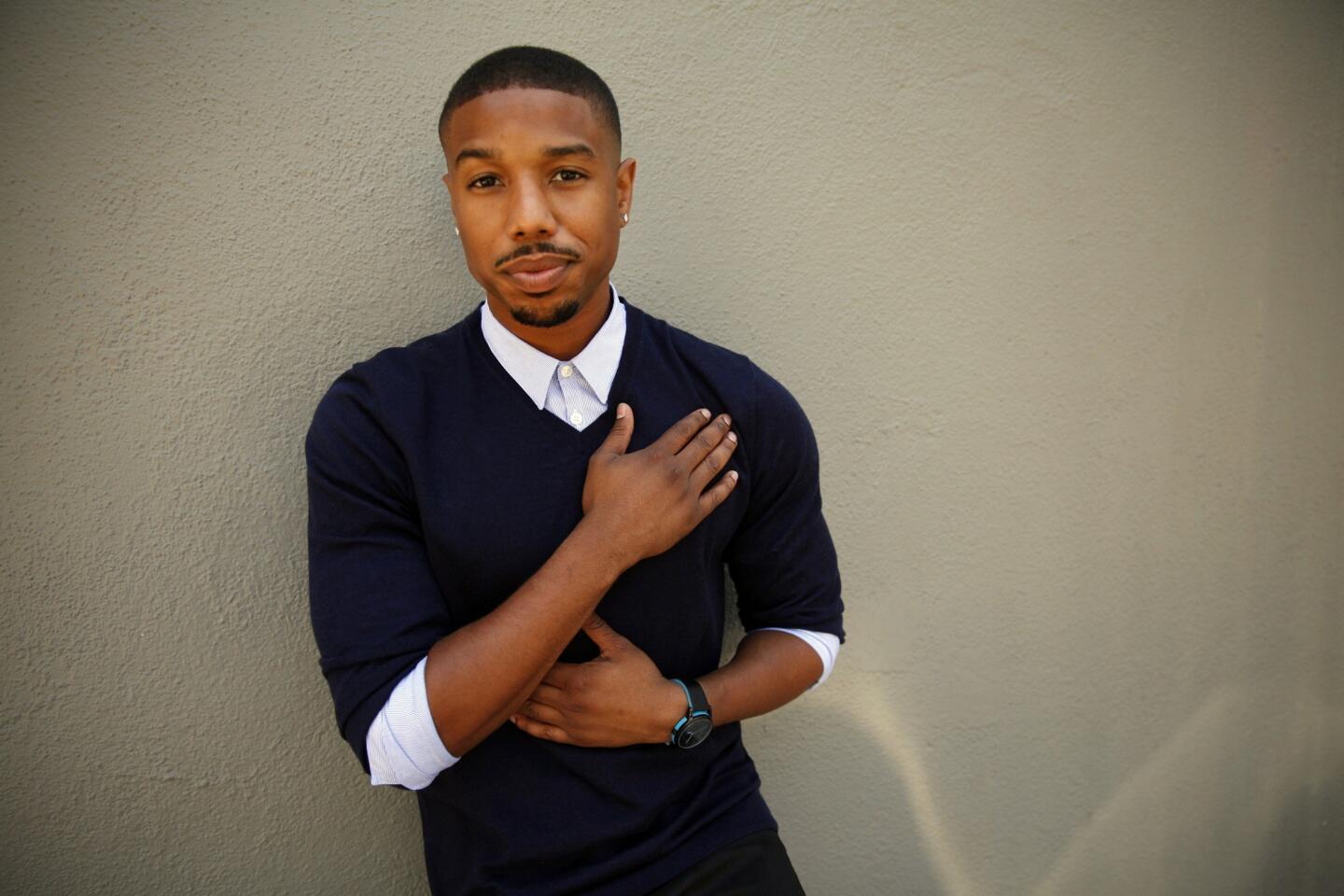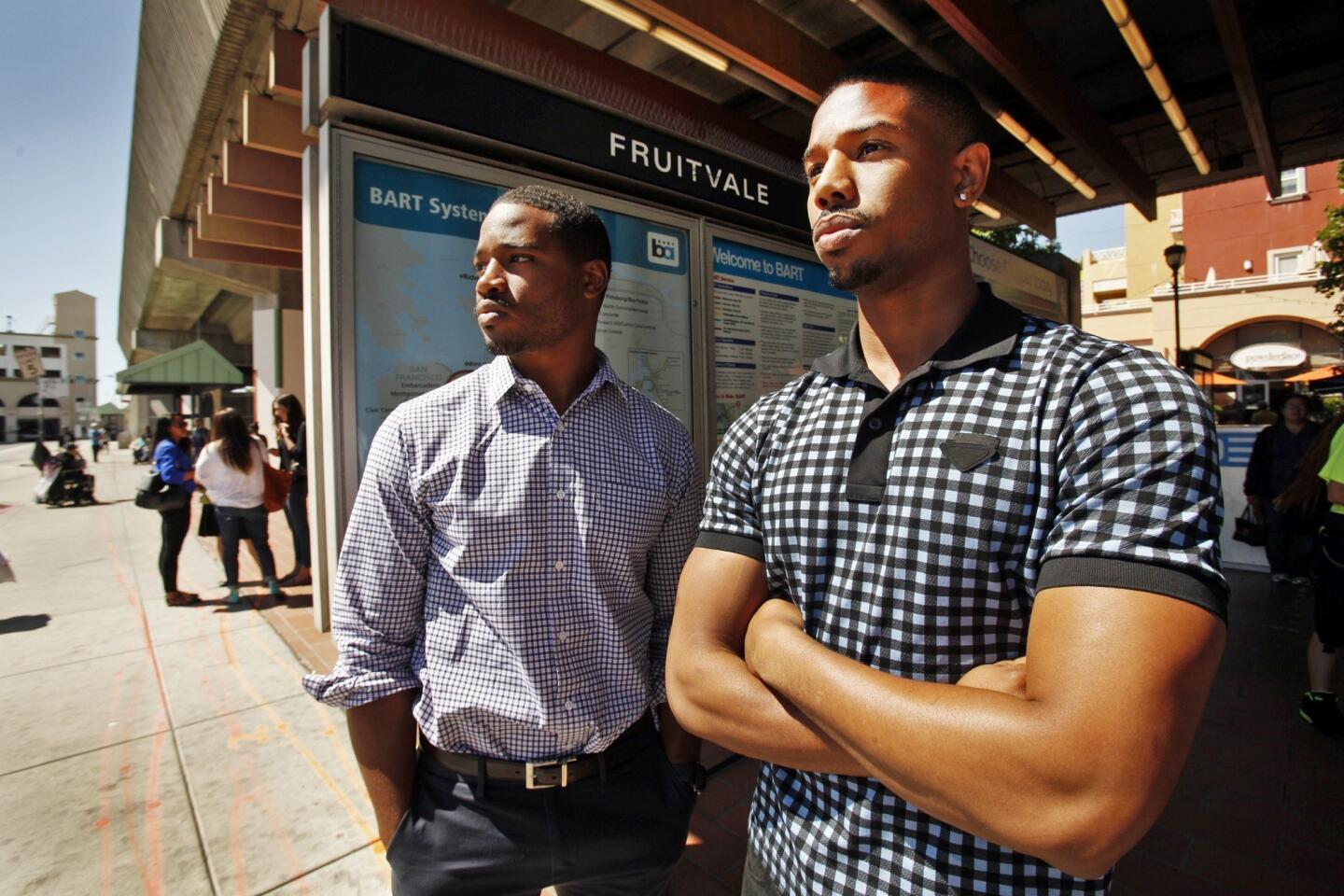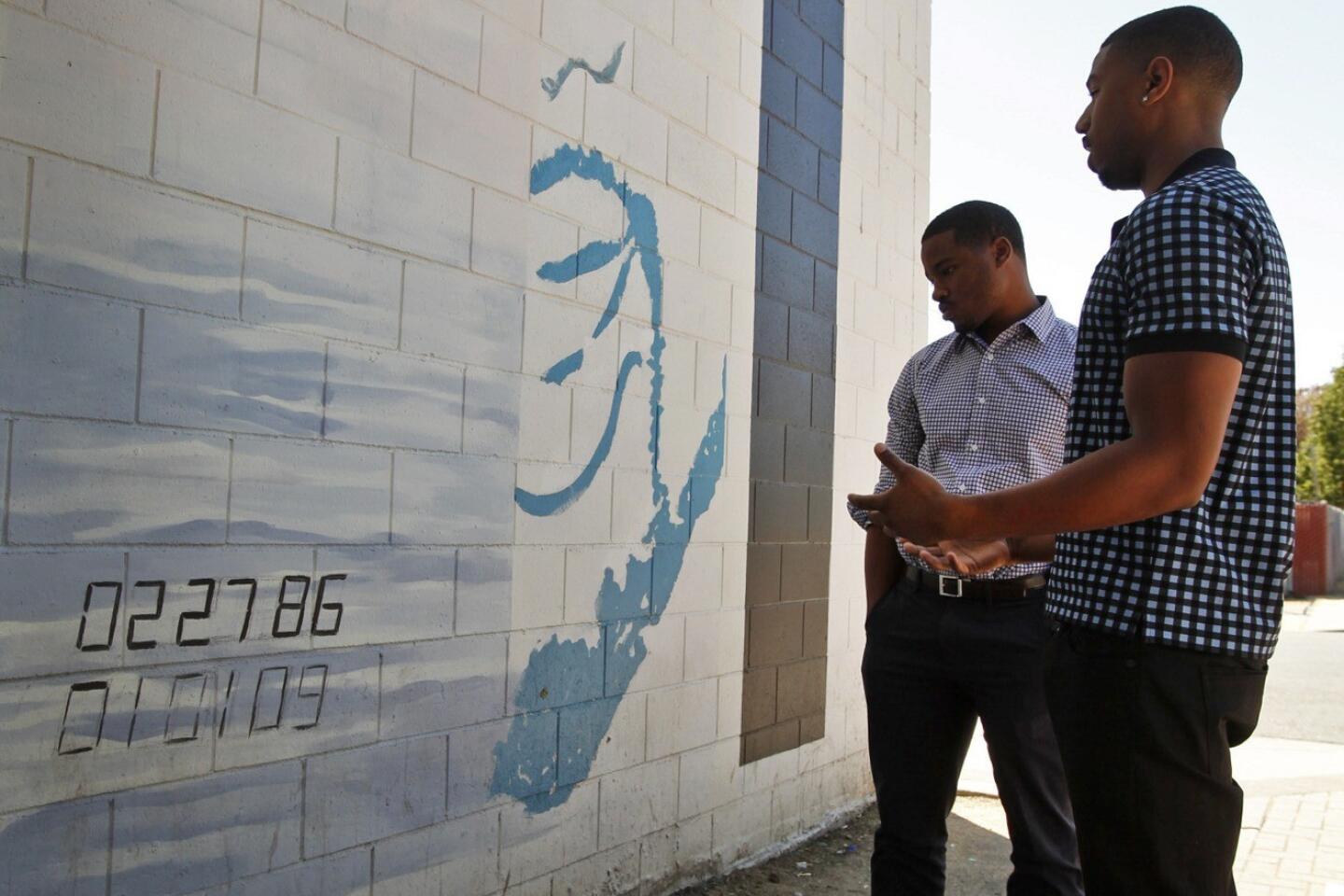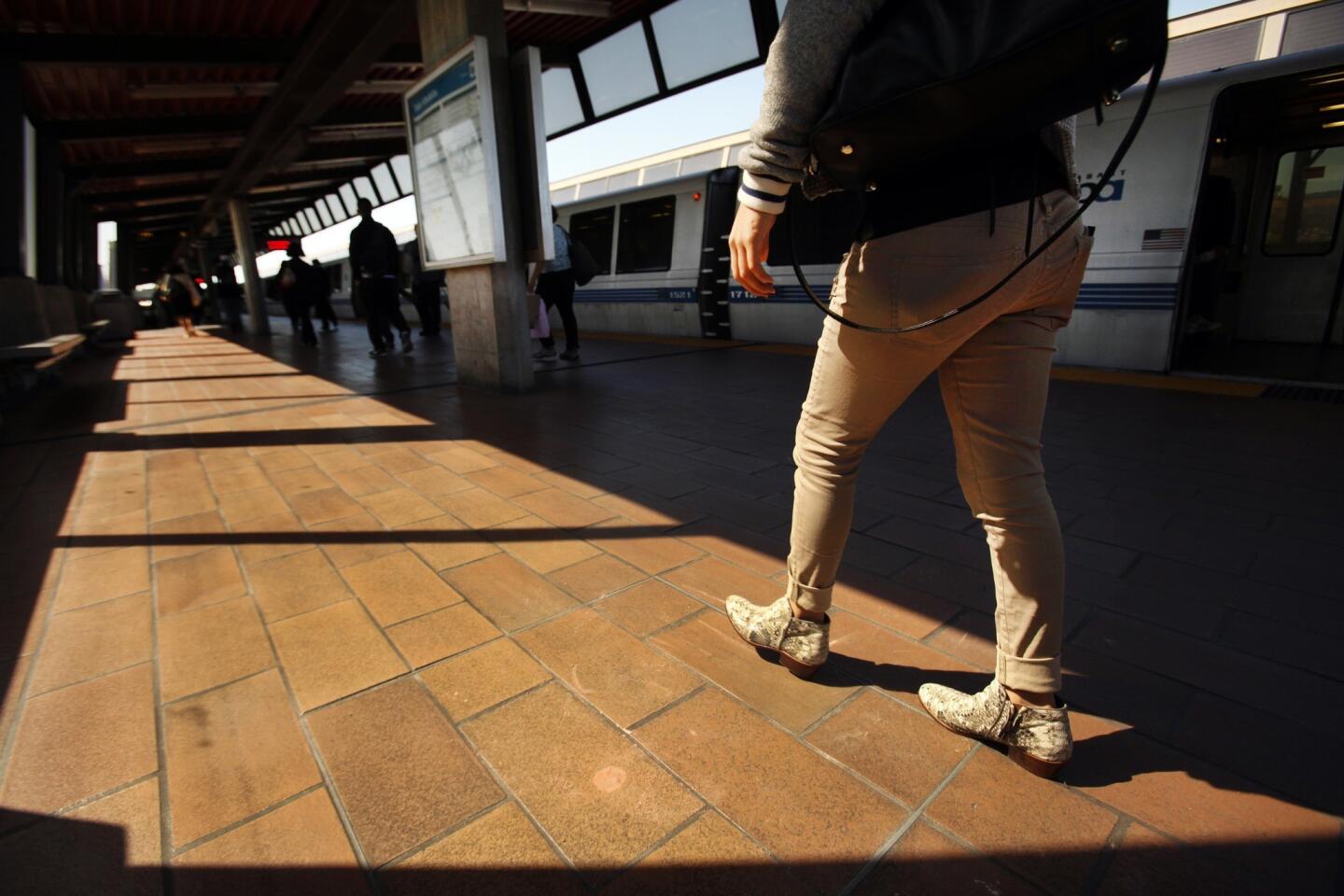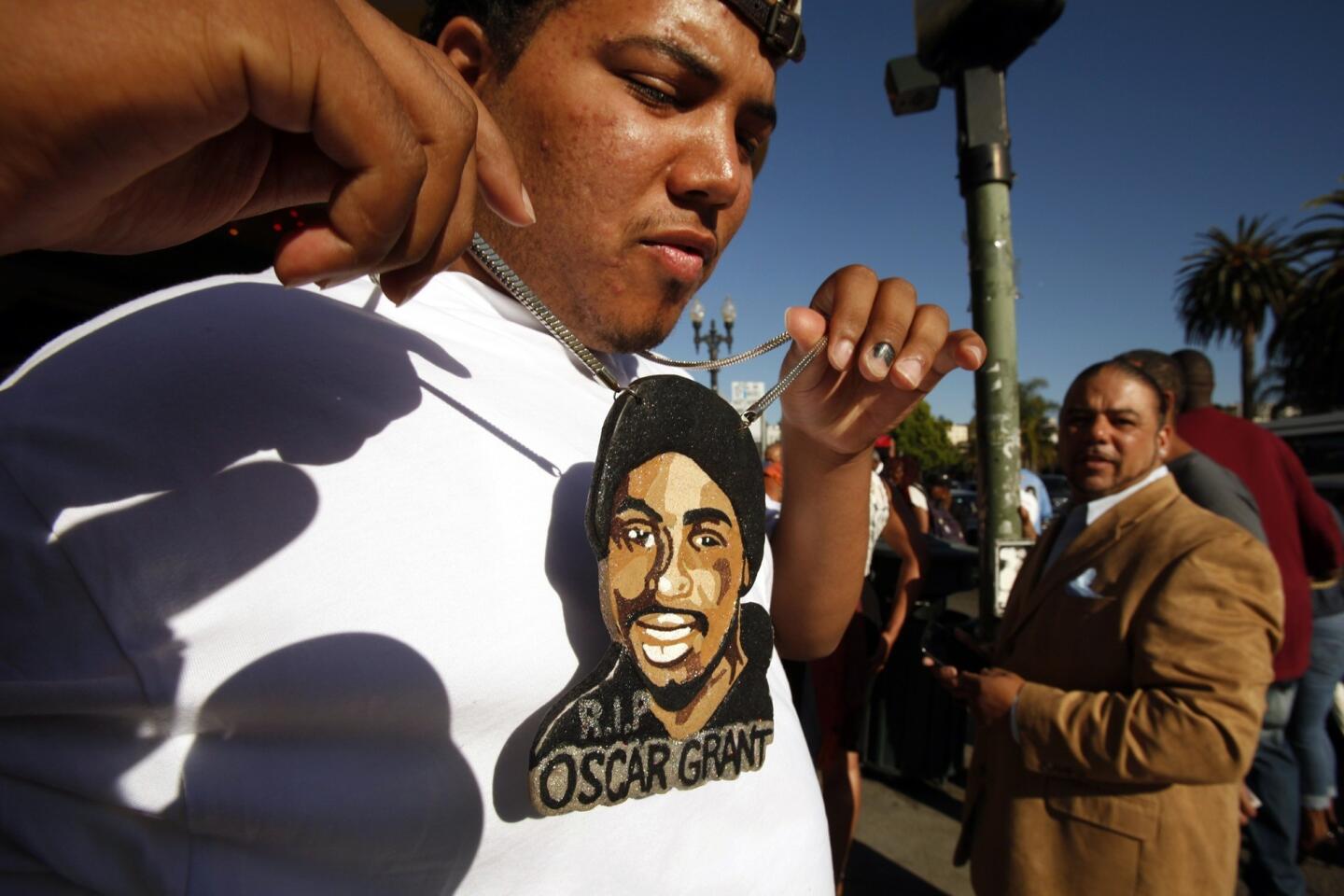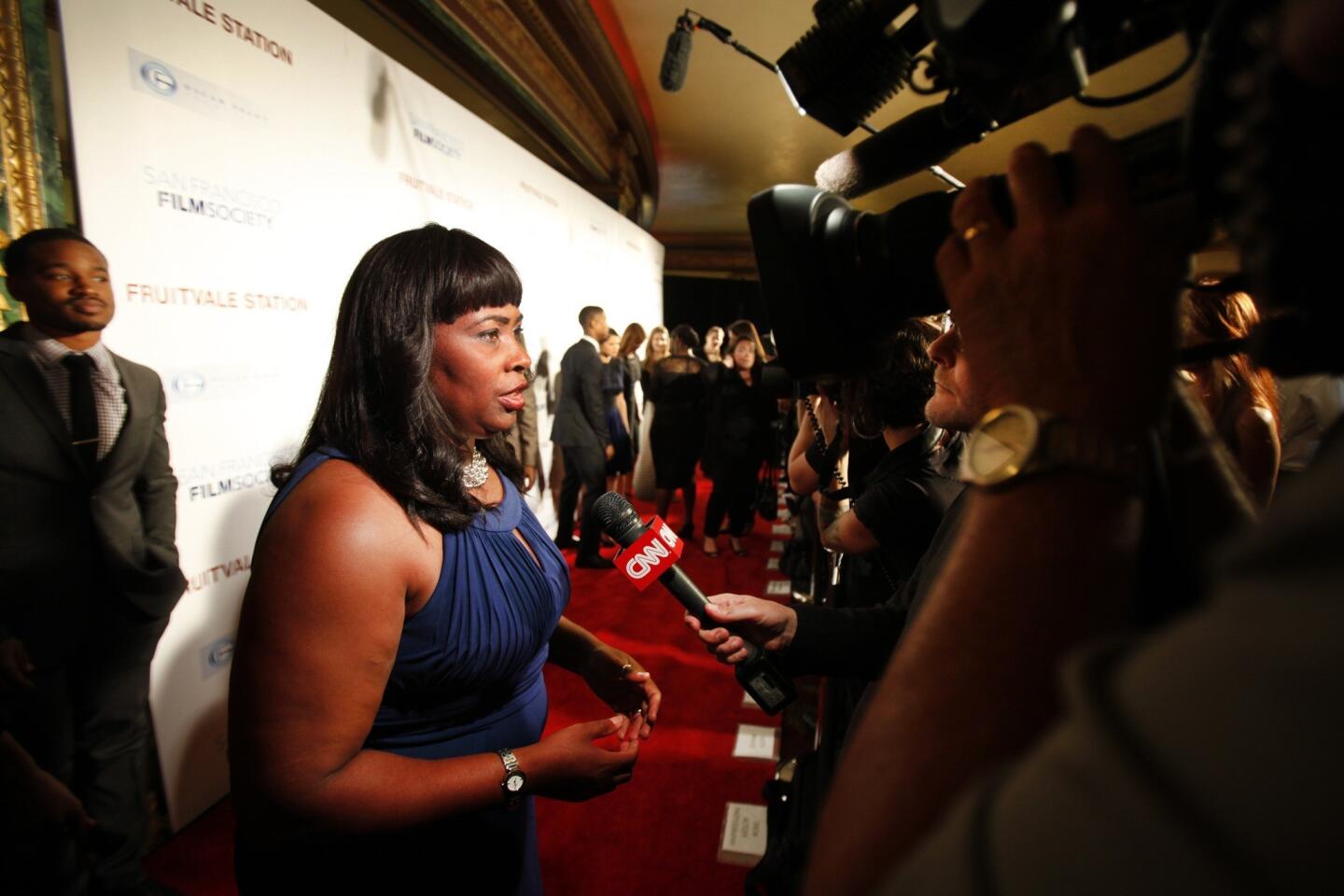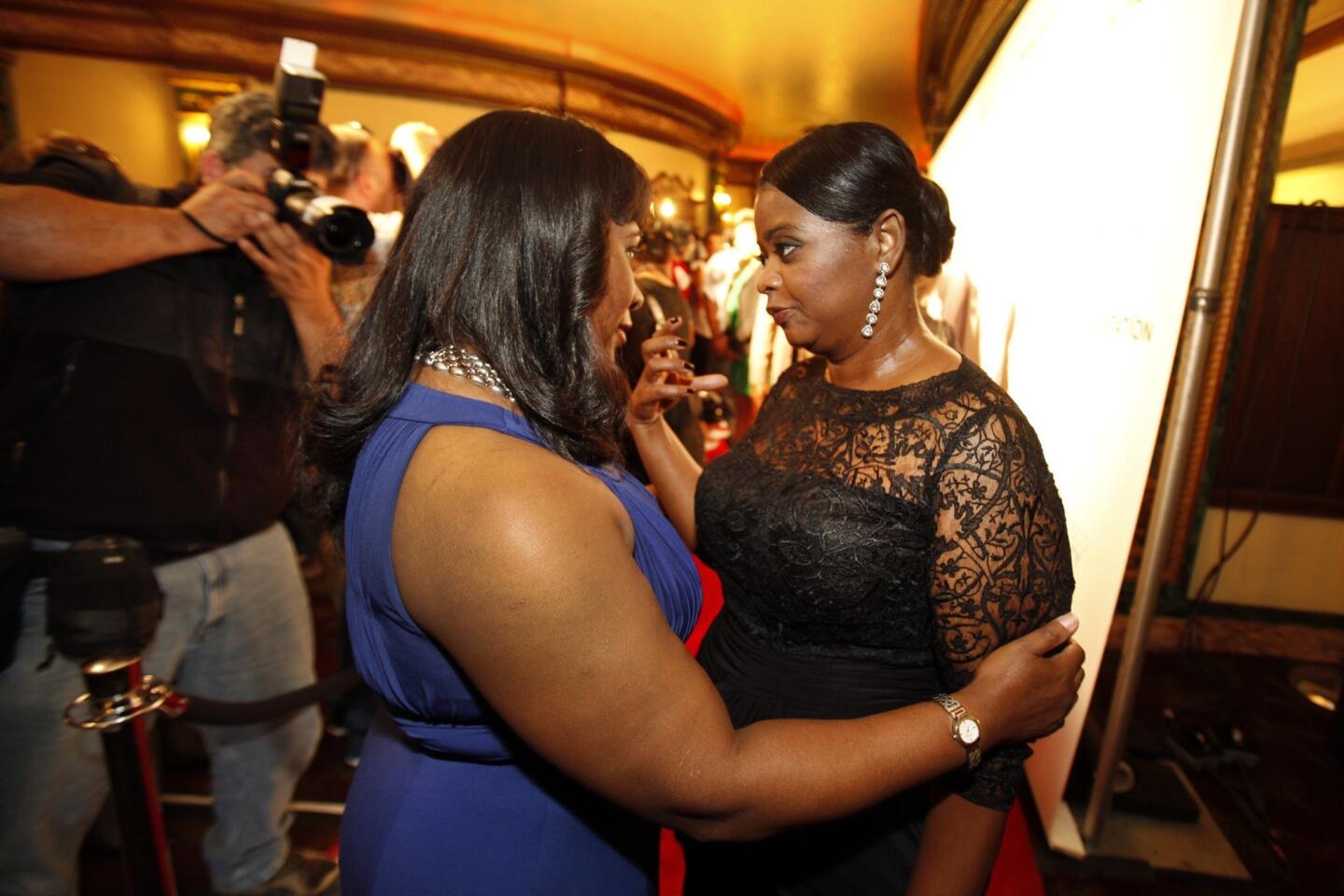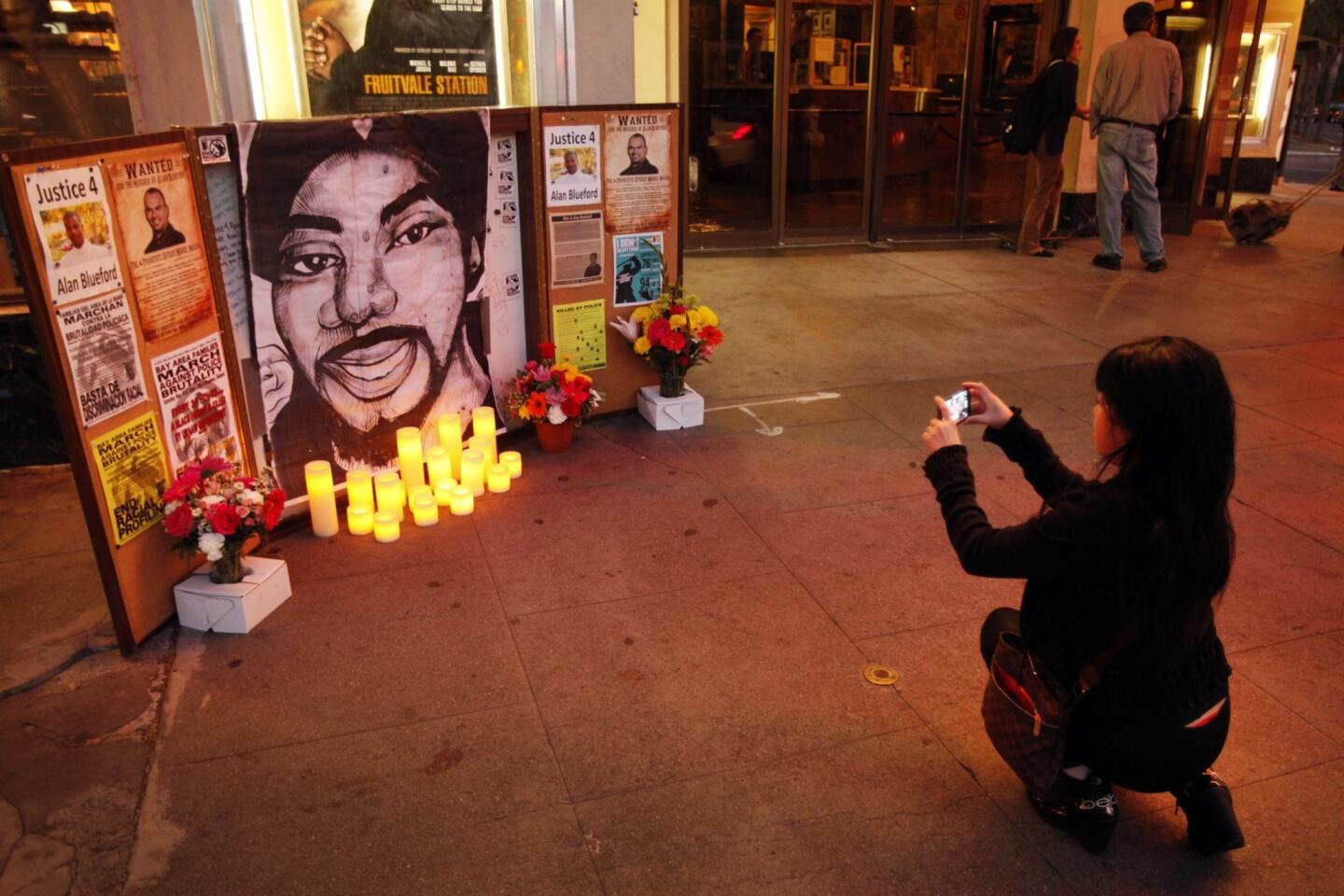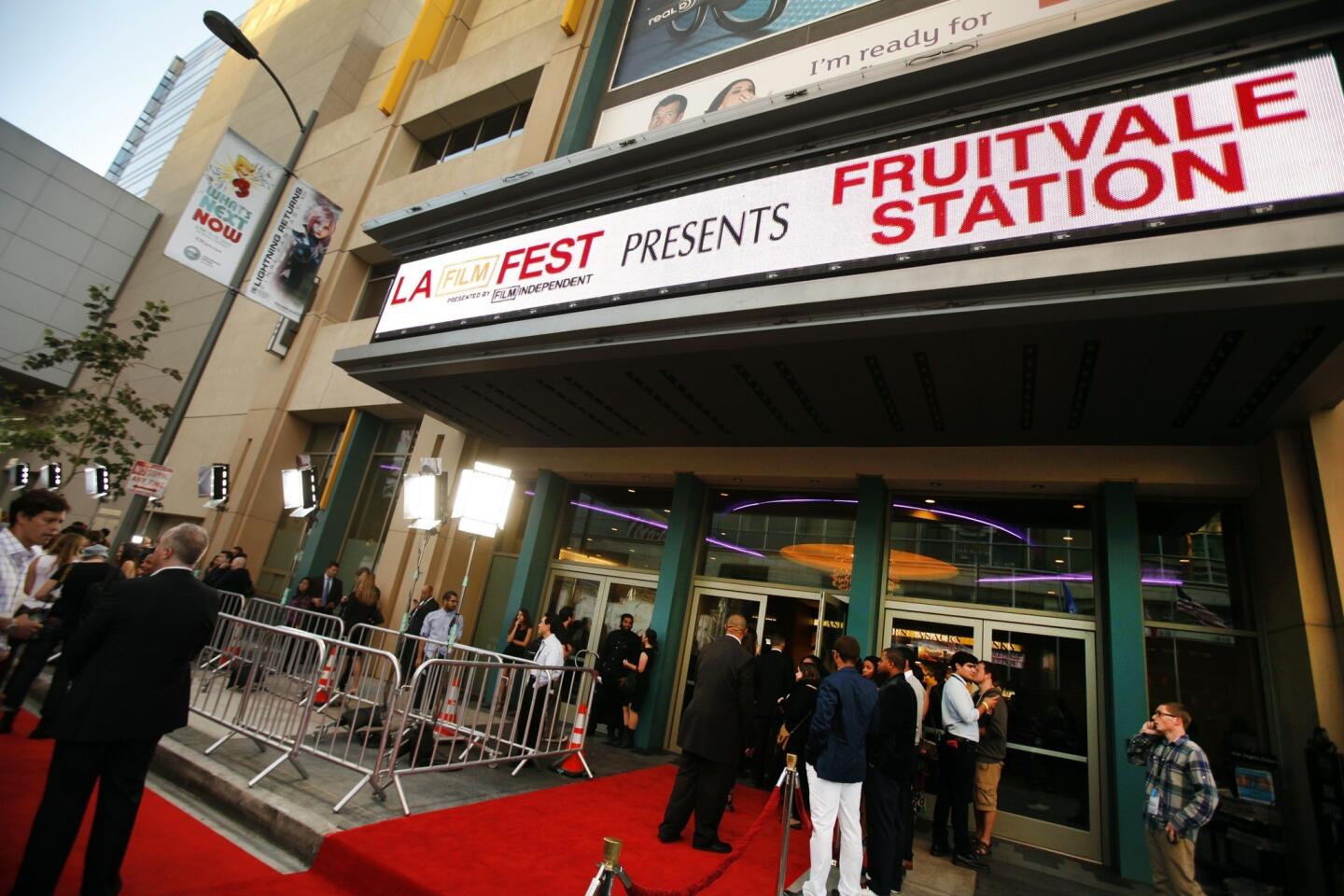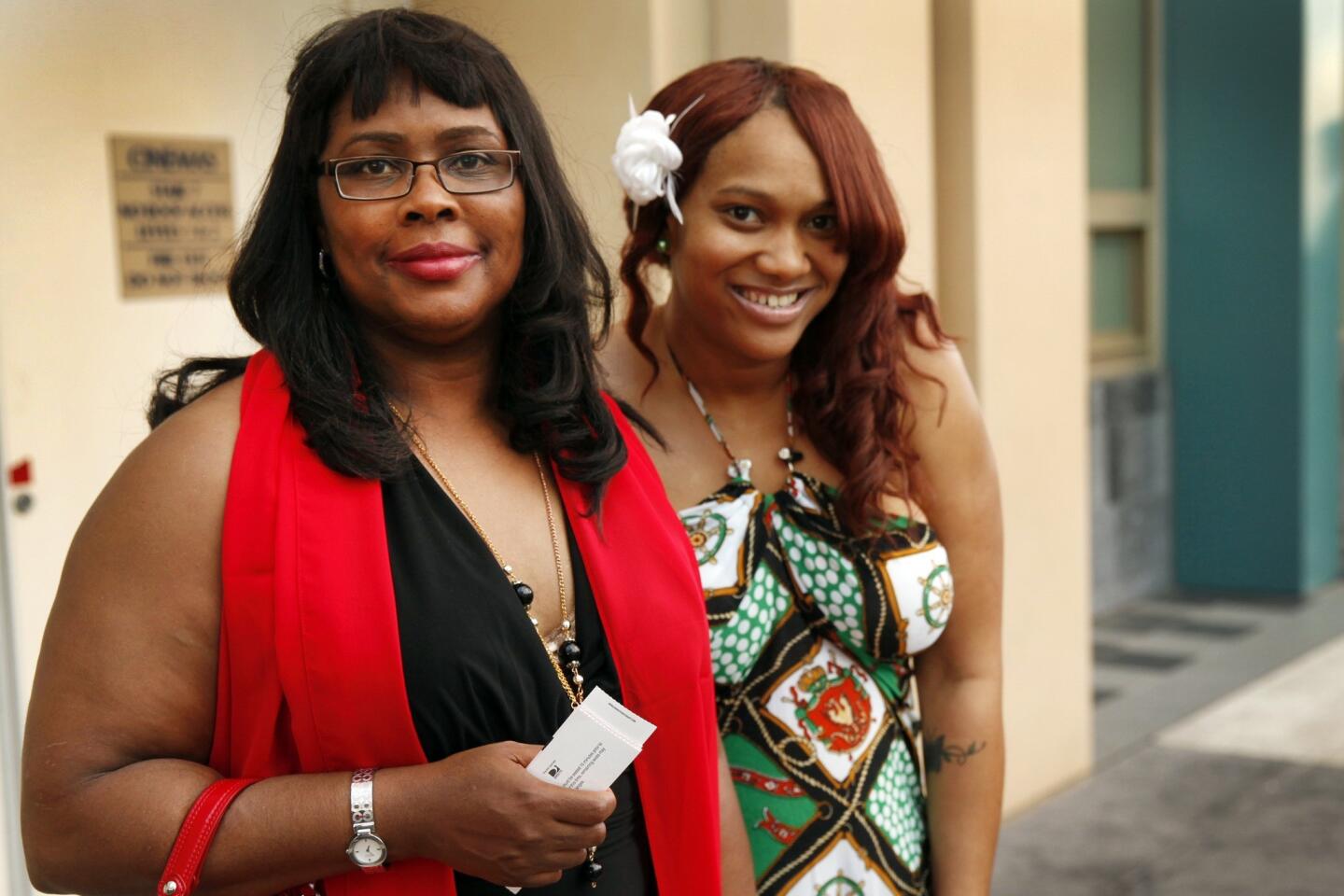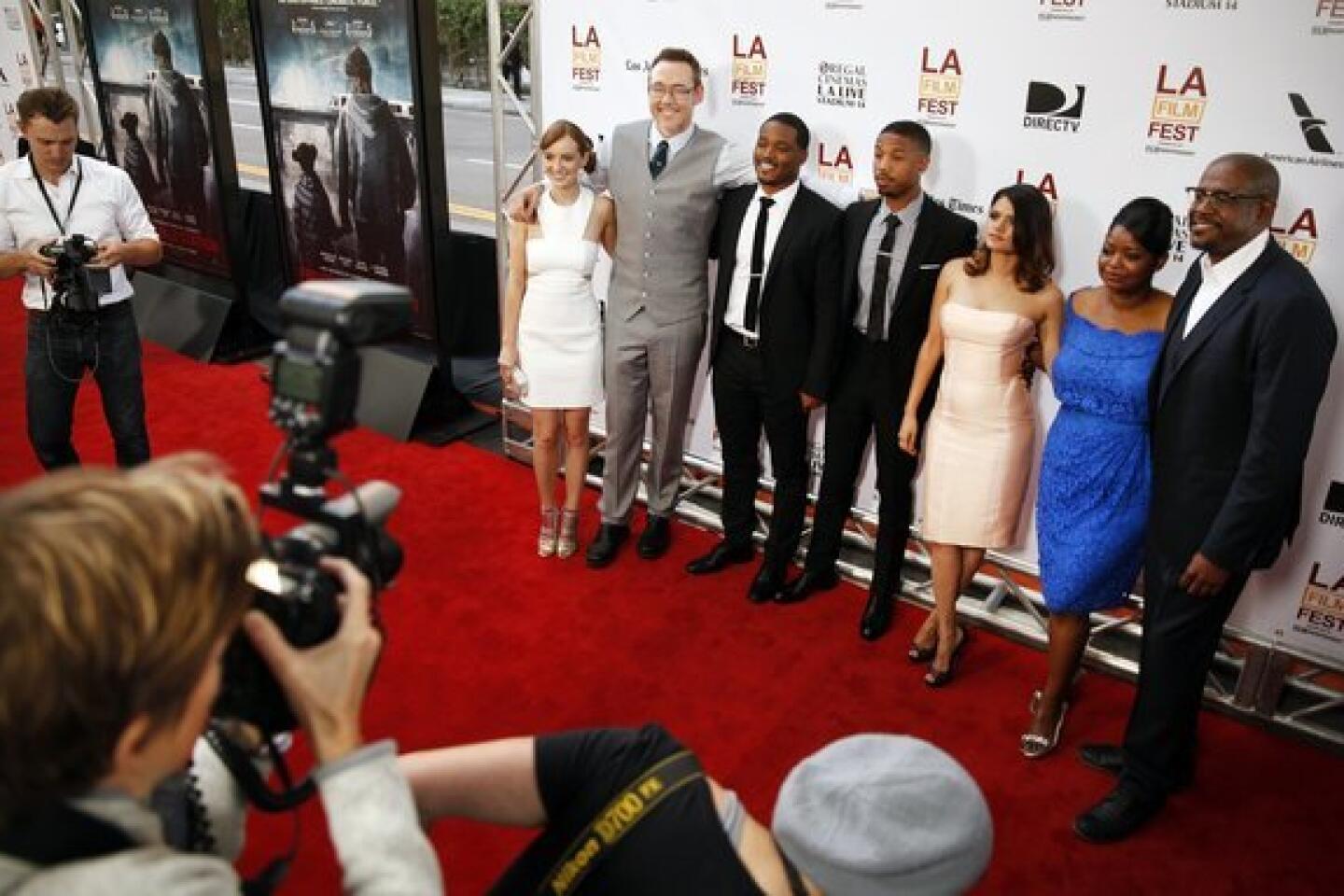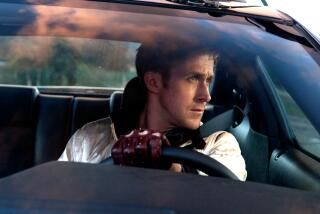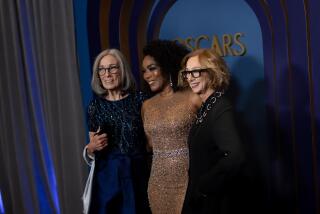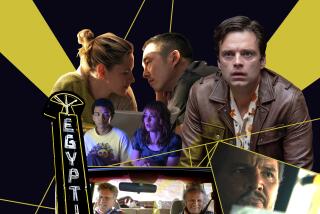‘Fruitvale Station’ star Michael B. Jordan feels the heat
In high school, Michael B. Jordan was a good kid. He was one of the star players on his basketball team. He made good grades even while juggling a role on “All My Children.” He tried to spend his salary wisely, buying a small apartment complex in 2005 as an investment.
One of his few extravagances was a BMW 330, which he used to jet from acting jobs in New York City and his home in Newark, N.J.
“That car gave me a lot of headaches,” he recalled, sitting in an empty Los Angeles gastropub midafternoon. Because he was an African American teenager driving a nice car, Jordan said, he was pulled over and questioned by the police dozens of times. “They’d say, ‘Is it stolen?’ I’d tell them to check the locks. ‘Please step out of the car.’ [What] do I need to step out of the car for? ‘Step out of the car.’”
GREAT READ: Oscar Grant film delivers a vital message
On this June day, the 26-year-old did not have to fret over driving himself: A car had been commissioned by the Weinstein Co. to pick him up from a nearby press junket for his new film, “Fruitvale Station,” and deliver him to an interview. The movie, out Friday in Los Angeles, signals a sea change for Jordan.
Though the actor had memorable turns in the acclaimed television programs “The Wire” and “Friday Night Lights,” until “Fruitvale Station” he had not played a leading man. It’s the kind of performance that turns academy voters’ heads: He plays Oscar Grant III, the 22-year-old whose death made headlines in 2009 after he was fatally shot — while unarmed — by a transit police officer at an Oakland subway stop.
Spending time with Grant’s kin while researching the role, talking on the promotional circuit about the questions his death raised in the Bay Area — it’s all made Jordan particularly reflective about race issues. His upbringing in a stable middle-class family certainly wasn’t as tumultuous as Grant’s, who once did time in state prison. Still, Jordan said he feels a lot of himself in Grant — both people-pleasers, eager to be liked and be at the center of the action.
The actor’s early interactions with the authorities have also stuck with him. If he has the option of driving down a street with “hard-core criminal drug dealers” or a road populated by cops, he said he’ll opt for the thugs.
“Driving in L.A., if I see a cop, I will turn off the block,” he said, still camera-ready from the junket in a starched shirt and preppy sweater. “I don’t want to be on the same street. And all of my paperwork is legit. My license is in order. No warrants. I’m not on parole.”
PHOTOS: Oscar Grant subway shooting story on film
In Hollywood, the color of Jordan’s skin still affects him more than he’d like. While Denzel Washington, Will Smith and Jamie Foxx continue to score major roles, there’s a dearth of young black actors being cast in starring roles. Jordan is one of the few of his generation whose name circulates in Hollywood, along with Anthony Mackie, Chadwick Boseman (who just played Jackie Robinson in “42”) and David Oyelowo (next to be seen in “The Butler”).
Most of the scripts Jordan reads include what he calls “stereotypes of what a black man is — comes from the hood, Mom does drugs, Dad’s not around.” When he meets with a writer or director about potential gigs, more often than not, he asks to take on a different character in the script than the one he’s been asked to play.
“If they had me in mind for the role that is written for the black guy, I’ll say, ‘This is the one I’m actually interested in and curious about,’” he explained. On last year’s “Chronicle,” he convinced director Josh Trank to change a part originally conceived for a white Jewish kid for him instead.
The director and actor have since become close, and it’s been heavily rumored that Jordan will play the Human Torch — a character who was white in the Marvel comic — in Trank’s upcoming reboot of “Fantastic Four.”
“Michael has had a SAG card since he was 11. He’s been holding down the responsibility of making a career for himself in a very competitive environment since before he hit puberty,” Trank said. “Fame and success can turn anybody into a monster — but he’s not like, ‘My movie won prizes at Sundance and got into Cannes and now I can finally break windows and beat people up!’ He’s having all this success, yet he’s dealing with it so professionally.”
PHOTOS: Hollywood backlot moments
Even during his teenage years on “The Wire,” Jordan took his career seriously.
“He was so focused back then — he just wanted to win,” said costar Idris Elba, who stars in “Pacific Rim,” also opening this week. “It’s funny — his name is Michael Jordan — and on ‘The Wire’ we used to laugh about that, because he was that good but in a different arena.”
Jordan’s performance in “Fruitvale Station” has received near-unanimous praise from critics, with The Times calling it his “leap to stardom” moment and the Hollywood Reporter comparing him to a “very young Denzel Washington.” The Weinstein Co. is planning to mount an awards campaign around him come fall, and the actor has been on a handful of major talk shows in recent months to promote the movie — and himself.
“It’s new — spending only a day in each city, having a stylist, being on ‘The View,’” he said on Thursday, the morning after flying back to L.A. to do “Jimmy Kimmel Live.” “My mom was flipping out because she’s such a huge Whoopi Goldberg fan. I’m just trying to treat each day like it’s the best day of my life.”
Though every interviewer brings up the possibility of him being nominated for an Oscar, he still gets fidgety at the prospect. Before embarking on the press tour last month, he became superstitious just at the mere mention of the golden man.
“You’re going to jinx me like that? Already? Jeez. Knock on all kinds of wood,” he said, rapping his fist against the table.
When pressed, though, he does admit to being proud of the performance.
“I think it shows range,” he said, grinning. “This is one of the few times I’ve looked at myself on screen and not seen me.”
More to Read
Only good movies
Get the Indie Focus newsletter, Mark Olsen's weekly guide to the world of cinema.
You may occasionally receive promotional content from the Los Angeles Times.
